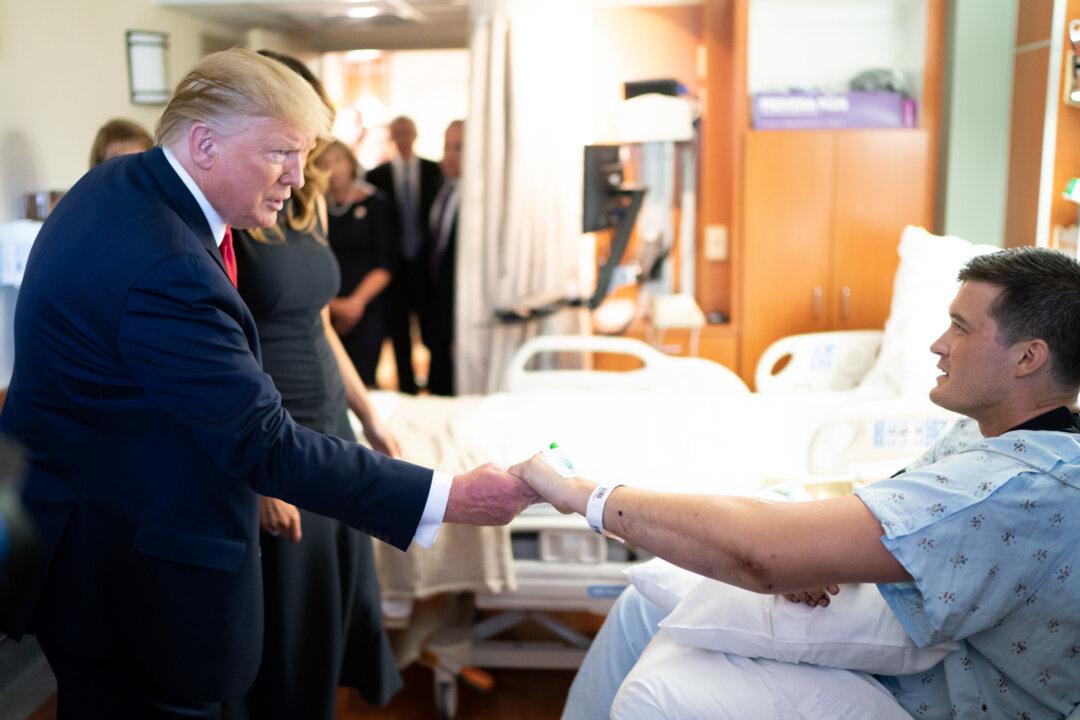President Donald Trump and First Lady Melania Trump visited Dayton, Ohio, and El Paso, Texas, on Aug. 7 to meet with the victims of the two mass shootings that days earlier had claimed the lives of 32 people and thank first responders for their efforts.
The president and first lady visited hospitals in both cities and met with victims and families, medical staff, and law enforcement officers. The press was barred from both events, because the trip was about meeting with victims and wasn’t meant to be a photo-op, according to White House press secretary Stephanie Grisham.





